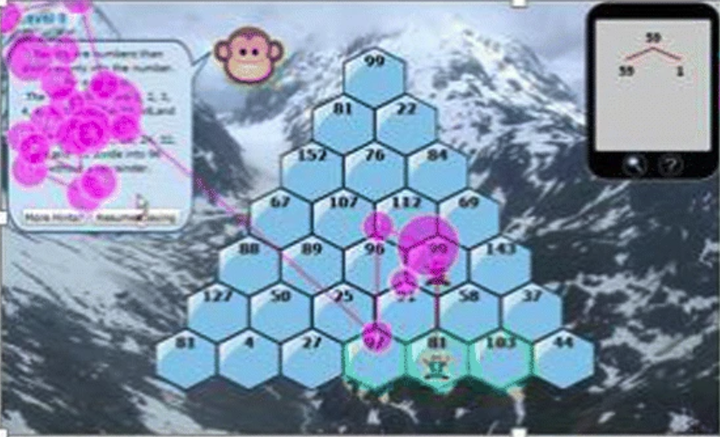
Abstract
This paper presents a user study that investigates the factors affecting student attention to user-adaptive hints during interaction with an educational computer game. The study focuses on Prime Climb, an educational game designed to provide individualized support for learning number factorization skills in the form of textual hints based on a model of student learning. We use eye-tracking data to capture user attention patterns on the game adaptive-hints and present results on how user performance, hint timing, and attitude toward getting help all affect the degree to which students attend to hints. We also show that improved attention to hints is a worthwhile goal, at least in Prime Climb, because when they are attended to hints can positively affect a student’s performance with the game.